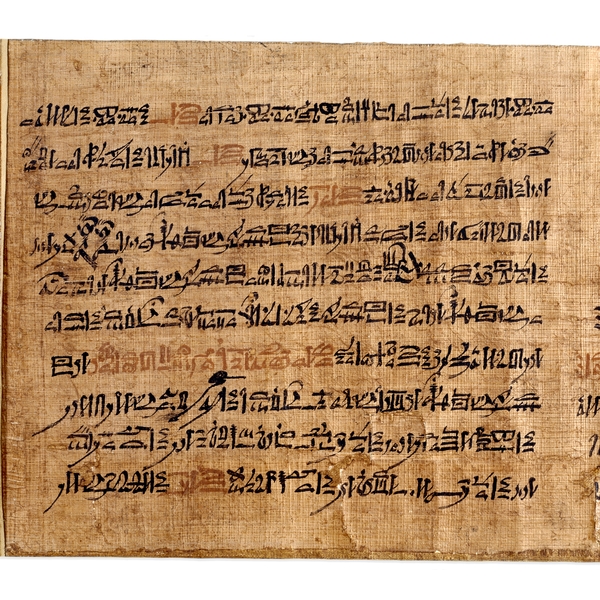“And it came to pass after these things, that his master’s [Potiphar’s] wife cast her eyes upon Joseph; and she said, Lie with me. But he refused, and…” (Gen. 39-7-8). When her husband came home, she said- “The Hebrew servant, which thou hast brought unto us, came in unto me to mock me” (Gen. 39-17).
Nothing new under the sun — smirked the Egyptologists whenever they started work on the translation of the “Orbiney Papyrus.” What they were deciphering from hieroglyphics was a popular story about the time of the XIX Dynasty which bore the discreet title- “The Tale of the Two Brothers.” “Once upon a time there were two brothers…. The name of the elder one was Anubis, the younger was called Bata. Anubis owned a house and a wife and his younger brother lived with him as if he were his own son. He drove the cattle out to the fields and brought them home at night and slept with them in the cowshed. When ploughing time came round the two brothers were ploughing the land together. They had been a few days in the field when they ran out of corn. The elder brother therefore sent the younger one off- ‘Hurry and bring us corn from the city.’ The younger brother found his elder brother’s wife having a hair-do. ‘Up’, he said, ‘and give me some corn, for I have to hurry back to the field. My brother said- “Quick, don’t waste any time.” ‘ He loaded up with corn and wheat and went out with his burden…. Then said she to him- ‘You have so much energy! Every day I see how strong you are…. Come! Let us lie down for an hour! — It might give you pleasure, and I shall also make you fine clothes.’ Then the young man was as angry as a southern panther at this wicked suggestion that had been made to him. He said to her- ‘What a disgraceful proposal you have just made…. Never do it again and I shall say nothing to anyone.’ So saying he slung his load on his back and went out to the fields. The wife began to be frightened about what she had said. She got hold of some grease paint and made herself up to look like someone who had been violently assaulted. Her husband… found his wife lying prostrate as a result of the outrage. Her husband said to her- ‘Who has been with you?’ She replied- ‘No one… apart from your young brother. When he came to fetch the corn he found me sitting alone and said to me- “Come, let us lie down for an hour! Do up your hair.” But I paid no attention to him. “Am I not your mother! and is your elder brother not like a father to you!” I said to him. But he was afraid and struck me to stop me telling you about it. If you leave him alive now I shall die.’ Then his brother grew as wild as a southern panther. He sharpened his knife… to kill his younger brother….”
We can almost see Pharaoh’s courtiers whispering over it. They liked this story. Sex problems and the psychology of women interested people even then, thousands of years before Kinsey.
The story of an adulteress, in the heart of an Egyptian tale, as the prototype, of the Biblical story of Joseph? Scholars argued the pros and cons based on the text of the “Orbiney Papyrus” long after the turn of the century. On the debit side, there was not the slightest trace of Israel’s sojourn in Egypt apart from the Bible itself. Historians and professors of theology alike spoke of the “Legend of Joseph.” Egypt was just the kind of country from which one might hope for and even expect contemporary documentation about events recorded in the Bible. At any rate this ought to be true far as Joseph was concerned, for he was Pharaoh’s grand vizier and therefore a most powerful man in Egyptian eyes.
No country in the Ancient east has handed down its history so faithfully as Egypt. Right back to about 3000 B.C. we can trace the names of the Pharaohs practically without a break. We know the succession of dynasties in the Old Middle and New Kingdoms. No other people have recorded so meticulously their important events, the activities of their rulers, their campaigns, their erection of temples and places, as well as their literature and poetry.
But this time Egypt gave the scholars no answer. As if it were not enough they found nothing about Joseph, they discovered neither documents nor monuments out of this whole period. The records which showed hardly a break for centuries suddenly stopped about 1730 B.C. From then on for a long time impenetrable darkness lay over Egypt. Not before 1580 B.C. did contemporary evidence appear once again.
Werner Keller. The Bible as History. Bantam Books. New York. 1982. p.84-86.
